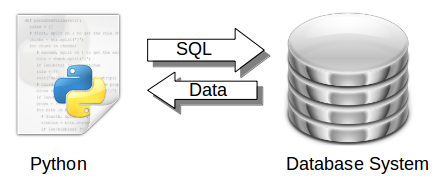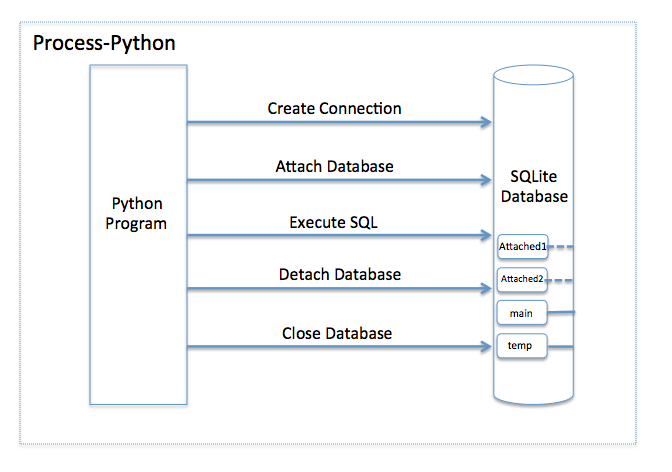

- PYTHON SQLITE DATABASE HOW TO
- PYTHON SQLITE DATABASE INSTALL
- PYTHON SQLITE DATABASE SOFTWARE
- PYTHON SQLITE DATABASE CODE
- PYTHON SQLITE DATABASE PASSWORD
PYTHON SQLITE DATABASE CODE
Using list comprehension to get the name of the columns present in Sqlite tableĪlternatively we can also use the list comprehension to get the list of column names from a sqlite table in python.Ĭheck out the following python code that return the column names available in a sqlite database. I have had already a table in my slqite database with the name 'sqlite.db' you name it whatevery you want. Names = list(map(lambda x: x, scription))

Python code to get the database column names using sqlite3 module.Ĭonnection = nnect('sqlite.db')Ĭursor = connection.execute('select * from Student') With the help of following above steps you can very easily get the column name of a sqlite database.
PYTHON SQLITE DATABASE HOW TO
We will be working with Sqlite table if you donot know how to create a sqlite database table and how to insert data in it.

sqlite3 is a helpful python module if you are working database related work in python.ĭo you want to get a list of colum names form a table in python? In this article I will show you how we can get the name of Columns in a Sqlite database table using python. sqlite3 module is a python built-in module. I hope you found it helpful.To get the names of column form the sqlite table in Python use the sqlite3 module in python. In this lesson we have learned how to create a table in a SQLite database and use python to access the database and check for valid username/password combinations. If not cur.fetchone(): # An empty result evaluates to False. Now we have most of the ingredients to check login details using Python and SQLite.į"SELECT username from users WHERE username='' " Checking Login Credentials with Python and SQLite If you were to use print(cur.fetchone()) instead of print(cur.fetchall()) in the code above, the output would just be boss. cur.fetchone(), which will return just the first item in the first row.cur.fetchone(), which will return just one row from the SQL query.You can see here that all the entries in the table are returned by cur.fetchall().Ī couple of other handy functions which are similar are: Note: what is cur? Think of it as the read/write head on a CD player or similar.
PYTHON SQLITE DATABASE PASSWORD
Statement = "SELECT username, password FROM users" Add the following code and run it: import sqlite3 as sql Next create a Python file in the same directory as the data.db. Now check the data and the structure and get a bit familiar with the interface if you are not already. You do this by selecting the option from the toolbar. Make sure you write the changes to the database. The idea is simple – unencrypted passwords stored in a database are not secure.Īlternatively you can create a new database inside DB browser and manually create the table using the GUI. You would used hashed and salted versions instead – don’t worry for now though if those concepts aren’t familiar. Note: in a production application you would never store unencrypted passwords in the database. INSERT INTO "users" VALUES ('admin','password') INSERT INTO "users" VALUES ('boss','1234') Go to the execute sql tab and type in (paste if you are already an SQL ninja) the following SQL code:.Create a new database and save it as data.db.Creating a users Table Using DB Browser for SQLite Check whether a provides username/password combination is valid.Use f-strings to safely interpolate variables into SQL statements.Fetch results from the database using Python.Connect to a SQLite database from Python.Add some username/password combinations.

PYTHON SQLITE DATABASE INSTALL
You should download and install this very useful program now before you proceed.
PYTHON SQLITE DATABASE SOFTWARE
To follow along with this lesson you will need a free piece of software called DB Browser for SQLite. You can read more about SQLite here: Python Databases – SQLite Tutorial Part 1. It is a lightweight, self-contained, serverless database management system. SQLite is ideal for small-scale data-driven Python applications. In this lesson you will learn how to create a basic login script with Python and SQLite.


 0 kommentar(er)
0 kommentar(er)
